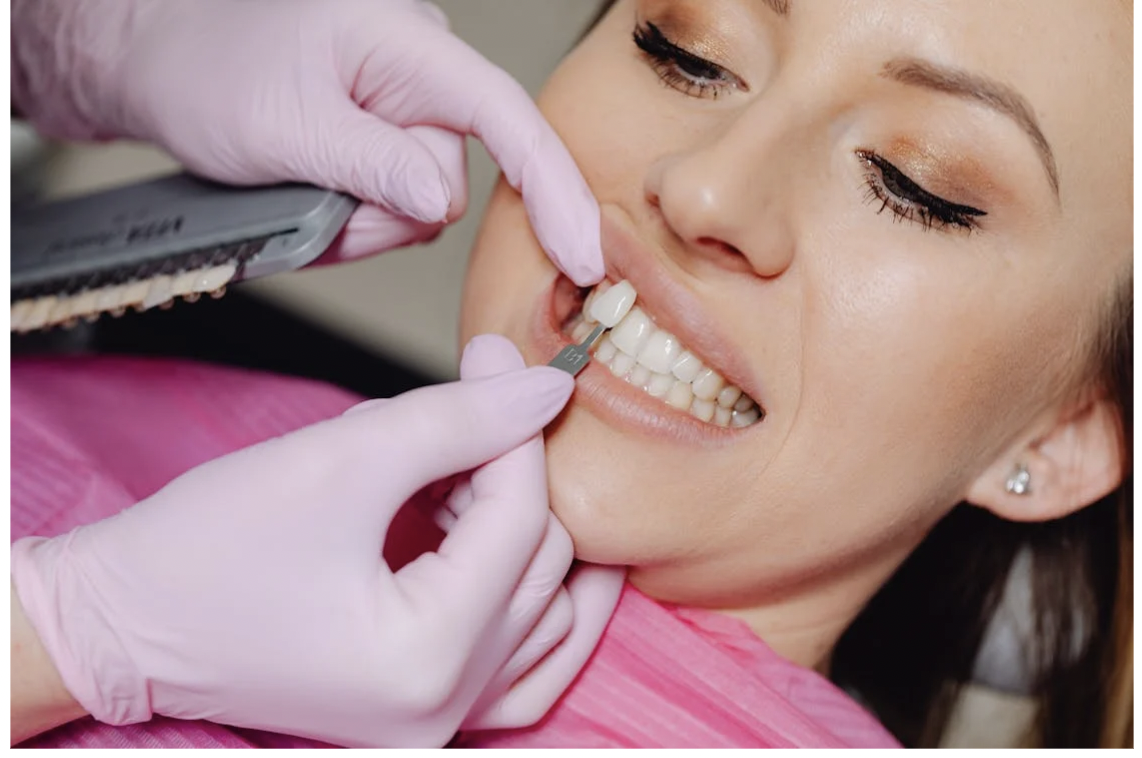Are Veneers Right for You? Factors to Consider Before Treatment

Deciding to enhance your smile with dental veneers is a significant decision that can dramatically improve your appearance and boost your confidence. However, before taking the plunge, it’s crucial to consider whether veneers are the right choice for your dental health and cosmetic needs. Veneers, thin layers of porcelain or composite material glued to the front of your teeth, offer a fantastic solution for a myriad of dental imperfections, from discoloration and minor misalignments to chips and uneven shapes. According to dentists, veneers can last up to 20 years depending on the material used. This blog post aims to guide you through the factors to consider before deciding on veneers, ensuring you make an informed decision that aligns with your aesthetic goals and dental health.
Assessing Your Dental Needs
Before opting for veneers, it's essential to understand your specific dental issues and what you aim to achieve with this treatment. Veneers are best suited for individuals seeking to correct aesthetic concerns such as staining that can't be improved with whitening, small gaps between teeth, minor misalignments, and chips or cracks. You need to find out more about your dental habits and the current state of your teeth to determine whether veneers are a suitable option. For instance, if you have significant decay or gum disease, it's crucial to treat these issues before considering veneers.
Determining Candidacy
Determining whether you are a good candidate for veneers involves a thorough evaluation by a dental professional. An ideal candidate would typically have good overall oral health, sufficient enamel on the teeth, and a commitment to proper dental hygiene post-treatment. Having healthy gums and teeth is crucial because the process can involve removing a small portion of the tooth's enamel to accommodate the veneer.
If your enamel is too thin or your dental health is compromised, veneers may not be the best option. Additionally, veneers are not suitable for those who grind their teeth without taking protective measures, such as wearing a night guard, because this habit can cause veneers to chip or break. A consultation with your dentist can help assess your suitability for veneers, considering factors such as oral health, the condition and alignment of your teeth, and your expectations for the outcome of the treatment.
Cost Considerations
One of the most significant factors to weigh when considering dental veneers is the cost, which can vary widely depending on several factors. The price of veneers is influenced by the type of material used, with porcelain veneers generally being more expensive than composite resin veneers. Additionally, the number of teeth being treated and the complexity of the individual case can affect the overall cost.
It's also important to consider that veneers are often not covered by dental insurance, as they are usually considered a cosmetic procedure. Therefore, you should thoroughly discuss payment and financing options with your dental office. Some practices offer payment plans or financing solutions to help make the treatment more accessible.
Remember, investing in dental veneers involves not only the initial cost of the procedure but also the long-term maintenance. While veneers can last many years with proper care, they may eventually need to be replaced. Discussing all these aspects with your dentist can provide a clearer picture of the financial investment required and help you decide if veneers fit within your budget.

Understanding the Procedure
Veneers are usually applied in a series of procedures, starting with an initial consultation. During this first meeting, your dentist will discuss your goals and expectations, conduct a thorough examination of your teeth, and take X-rays. This stage is critical for ensuring veneers are the right option for you.
Following the consultation, the next step is the preparation of your teeth. This process usually requires removing a small amount of enamel from the front surface of each tooth to make space for the veneer. This step is crucial for a natural look, ensuring the veneers fit perfectly without appearing bulky. Your personalized veneers are then made in a dental laboratory using an impression of your teeth.
While waiting for your permanent veneers, temporary ones may be placed to protect your prepared teeth. Once your custom veneers are ready, the final appointment involves fitting and bonding them to your teeth. Before permanently affixing the veneers, your dentist will check the fit and color, making any necessary adjustments. The veneers are then bonded to your teeth using a special adhesive, which is hardened with a light beam, securing the veneers in place.
Veneers can be an excellent solution for achieving a perfect smile, but it's essential to consider several factors before making a decision. Understanding your dental needs and candidacy, weighing the cost implications, and knowing what to expect during the procedure are all crucial in determining if veneers are right for you. As with any dental treatment, it's vital to consult with your dentist, who can provide expert advice and guidance to help you make the best decision for your oral health and aesthetic goals.






